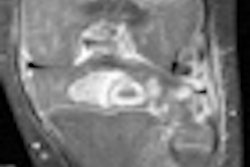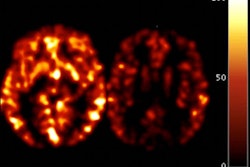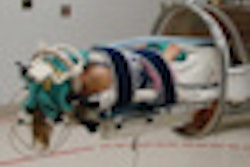A new study published in the January issue of Radiology indicates that 42% of women eligible for a breast MRI exam declined the procedure.
The reason most often given for turning down a breast MRI study was claustrophobia, followed by time constraints and financial concerns, according to the study (Radiology, 2010, Vol. 254:1, pp. 79-87). The results come even as new research indicates the value of breast MRI in finding additional cancers in high-risk women.
Dr. Wendie Berg, Ph.D., was the lead investigator of the American College of Radiology Imaging Network (ACRIN) 6666 study. ACRIN researchers wanted to gauge patient acceptance of breast MRI as a screening tool; current guidelines recommend that some groups of high-risk women receive MRI screening in addition to yearly mammograms starting at age 30.
The researchers found that 1,215 women enrolled in the ACRIN 6666 study met the criteria as being eligible for a breast MRI exam due to their high-risk status. However, only 703 (58%) agreed to undergo a study, and only 52% completed the exam protocol.
Of the 512 women who refused the breast MRI studies, the following reasons were among those cited:
- Claustrophobia, 130 women (25%)
- Time constraints, 93 (18%)
- Financial concerns, 62 (12%)
- Physician would not provide a referral, 47 (9%)
- Patient was not interested, 40 (8%)
- Patient was medically intolerant to MRI, 39 (8%)
- Patient did not want to undergo contrast injection, 29 (6%)
Among the 703 women who agreed to participate, 55 did not undergo the exam for various reasons, including withdrawal of consent, scheduling problems, and missed appointments. An additional 21 patients did not complete the exam, had unreadable results, or did not meet the protocol deadline. Ultimately, only 627, or 52% of the eligible women, completed a screening MRI.
The researchers concluded by saying that for women who do not want to undergo breast MRI, ultrasound can be used to supplement mammography screening, particularly for those at intermediate risk, such as women with extremely dense tissue and many women with a personal history of breast cancer.
Related Reading
Breast MRI best for finding mammographically occult cancers, November 9, 2009
Film-screen mammo and MRI: Different enough to complement, November 6, 2009
Breast MRI can resolve mammography findings, but use with caution, October 6, 2009
Patient age, clinical indication need to be considered in breast MRI, September 18, 2009
CAD enhances breast MRI specificity, September 17, 2009
Copyright © 2009 AuntMinnie.com



















